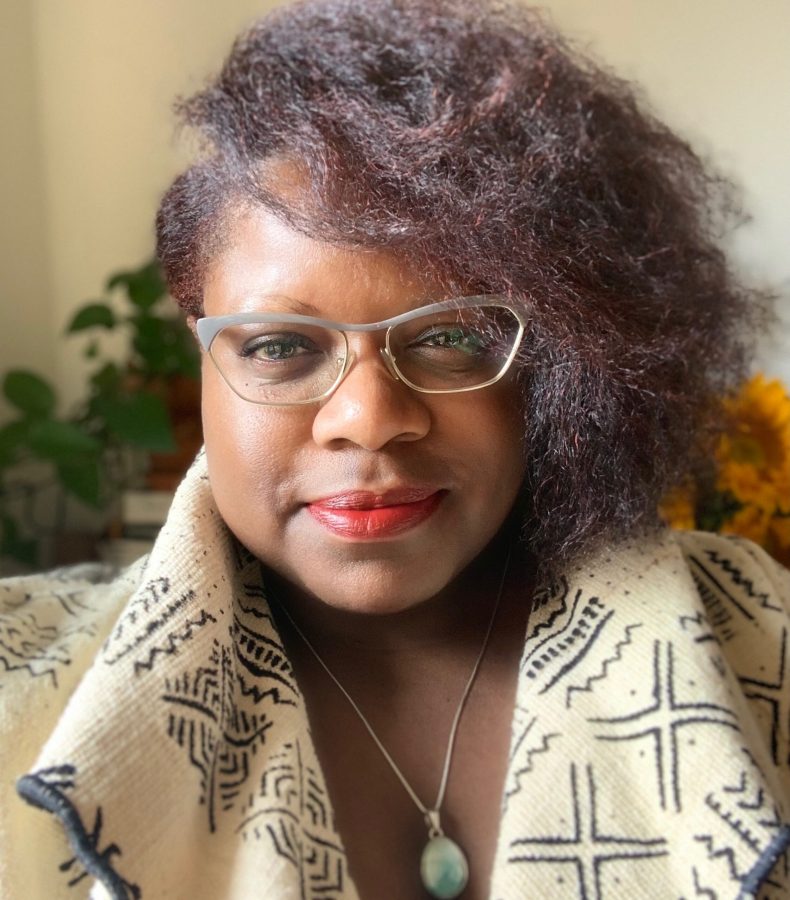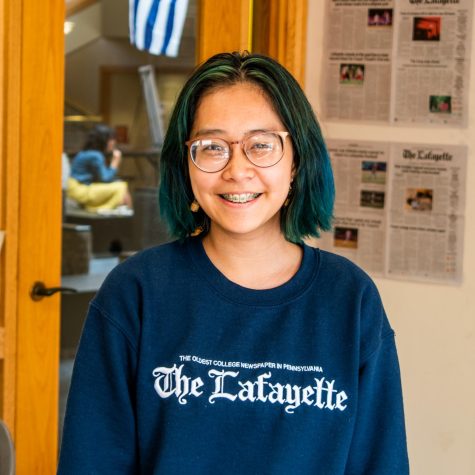In her debut novel “No Heaven for Good Boys,” author Keisha Bush makes the case for hope.
“Hope doesn’t come in one outfit,” Bush said in an interview with The Lafayette. “[“No Heaven for Good Boys”] is about faith, loss of faith, and hope. There’s a lot of hope as one tries to trust in their faith again—faith in love and faith in the greater world around them.”
At an event this past Thursday, Bush read aloud excerpts from her book and also answered questions from students.
Bush described the book as “a modern day Oliver Twist story that meets the Catholic priests scandal, but within Islam.”
“No Heaven for Good Boys” tells the story of a young Senegalese boy named Ibrahimah. At six years old, he is separated from his mother to join the Talibé, which Bush describes as “a brotherhood in which young boys are sent to a school to learn and memorize the Quran.” However, unbeknownst to Ibrahimah and his mother, the school’s Marabout, or teachers, abuse their power at the school by forcing the Talibé to beg in the streets.
She said she first learned about the Talibé when she saw them begging on the streets herself.
“I personally saw children out as early as six, seven in the morning. And I would often see the boys out at 11:30 at night, exhausted but still begging,” said Bush, who lived in Dakar, Senegal during the mid-2000s.
“The teachers who were forcing them to be out here, they were taking advantage of tradition and culture,” she added. “Just like the Catholic priest scandal, religion is used to hide more insidious behavior against children.”
This theme of religion has been an integral part of Bush’s life. She grew up as a Jehovah’s Witness, practiced Islam until her early teens before separating from religion altogether. Now, she practices Buddhism.
“Whether I want it or not, religion is a huge part of me,” said Bush. “I have come to understand that there’s more of me in the book than I may have thought.”
Although Bush poured a lot of her own experiences into “No Heaven for Good Boys,” she said the book was not written primarily with people like her in mind.
“I wrote the book for the Talibé,” Bush said. “One of my hopes is that a Talibé learns English and reads the book, and realizes someone loved him.”
After the Talibé, Bush says that the other audience for the book are Senegalese people.
“Oftentimes, books about others are not written for that other. It’s usually written for a very homogenous American reader. I decided to push up against that and notice it within myself,” said Bush. “It’s radical to decide that your default reader is someone outside of [the literary] canon.
Although Bush wants to center the Talibé and Senegalese people as the audiences for “No Heaven for Good Boys,” she noted that these did not have to be the only audiences.
“American readers have the capacity to read stories that are not centered around them, but there’s an assumption that they don’t have that capacity,” Bush said. “So this is me trusting American readers, saying, ‘I know you can read this and get it.’”
“Although these characters and the place are somewhat different from our world, there are universal themes of family, faith, struggle, love, motherhood, fatherhood, being a child,” she continued. “The hope is to write a book that another reader somewhere in the world who’s going through a difficult time can read, and realize that whatever we’re dealing with right now, in this moment, is just a moment. And this too will pass one day.”
Bush didn’t plan to publish her debut novel during a global pandemic—she wrote the first draft in about six months back in 2010—but the themes of hope, faith and struggle in “No Heaven for Good Boys” now seem particularly poignant, she said.
“What I hope people get from [the book] in relation to COVID-19 is that we’ve all had to rely on faith, faith that we can get through it,” Bush said. “Faith that we will not crumble within this time.”






































































































